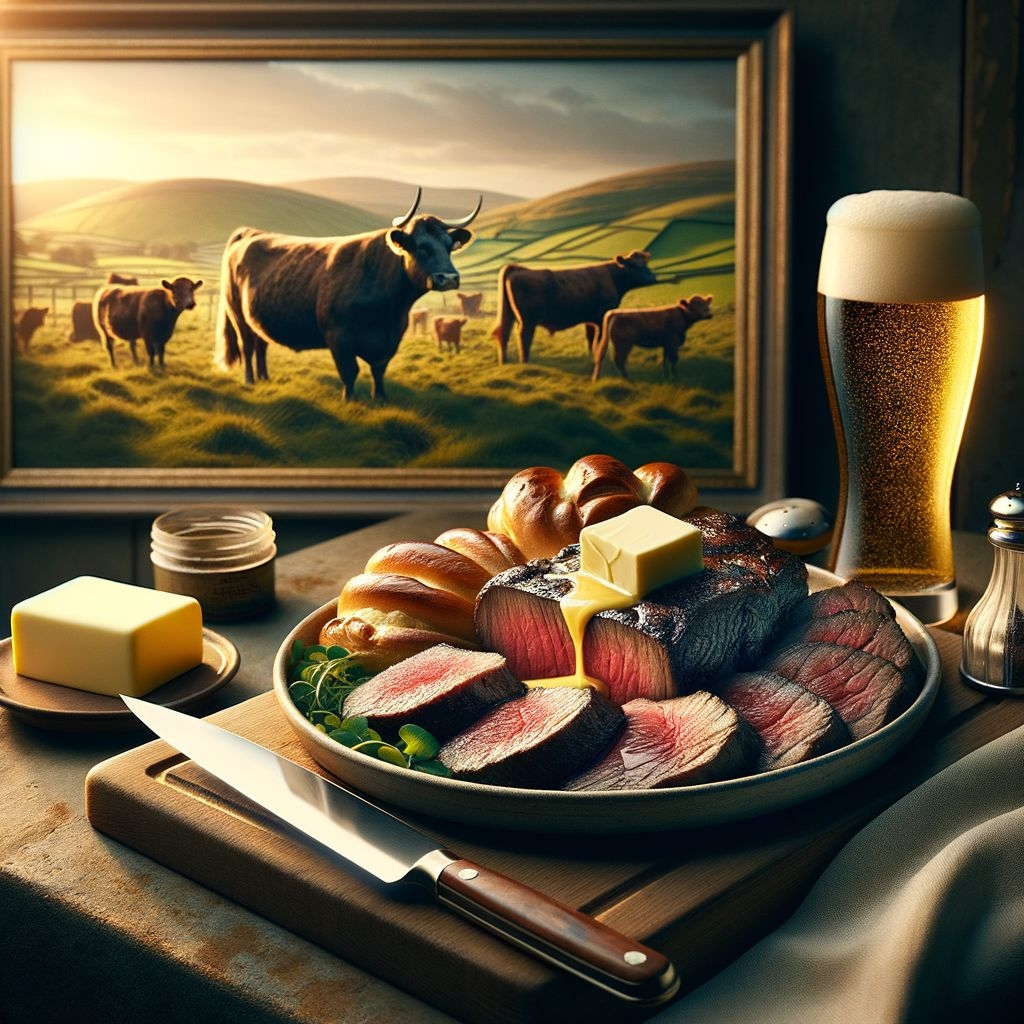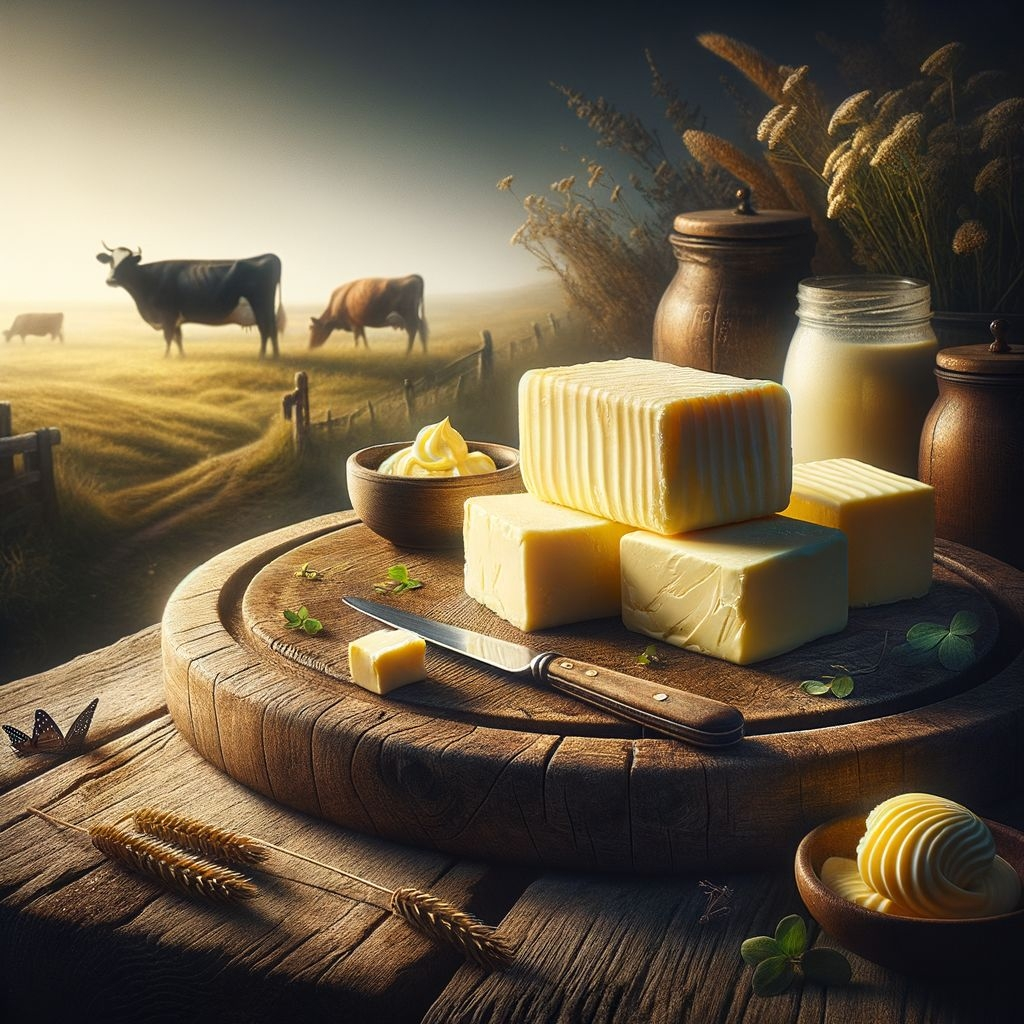Choosing the Best Type of Butter and Ghee for Your Carnivore Diet
The carnivore diet has gained popularity in recent years for its focus on consuming animal products while excluding plant-based foods. For carnivores following this meat-based diet, butter serves as a valuable addition, providing essential nutrients and enhancing the overall dining experience. Dairy products like butter offer beneficial fatty acids like butyrate and conjugated linoleic acids, which contribute to overall health and well-being on the carnivore diet.
What Are the Benefits of Including Butter in a Carnivore Diet?
Butter is a staple in the carnivore diet for several reasons. Firstly, it is a rich source of healthy fats, including omega-3 fatty acids and conjugated linoleic acid (CLA), which are vital for overall health. These fatty acids aid in promoting optimal brain function and supporting heart health.
Additionally, butter enhances the flavor and texture of meals, making them more enjoyable for carnivores. Its creamy consistency adds depth to dishes like steak and butter gal, elevating the eating experience.
Moreover, butter provides nutrient density by offering fat-soluble vitamins like K2, essential for bone health and blood clotting. This nutrient profile makes butter a valuable component of a carnivore’s dietary intake.

How Does Butter Complement a Carnivore Diet?
For individuals following a carnivore diet, butter plays a crucial role in meal satisfaction. By adding satiety to meals, butter helps carnivores feel fuller for longer periods, reducing the need for frequent snacking between meals.
Furthermore, butter boosts energy levels due to its high-fat content. This energy source is particularly beneficial for those on a keto or carnivore diet as it provides a quick and sustainable energy boost.
Moreover, butter enhances nutrient absorption, allowing carnivores to make the most of the nutrients present in their meat-based meals. It aids in the absorption of fat-soluble vitamins and nutrients, contributing to overall health and well-being.

Best Butter for the Carnivore Diet?
When selecting butter for a carnivore diet, considerations must be made regarding the type of butter chosen. Carnivores often debate between unsalted and salted butter. Unsalted butter is preferred by some to control sodium intake, while salted butter adds flavor to dishes.
Ghee, a form of clarified butter, is another popular choice among carnivores. Ghee offers benefits such as a higher smoke point and a rich, nutty flavor. However, it is essential to consider individual dietary preferences and tolerances when opting for ghee.
Moreover, grass-fed butter is favored for its superior nutrient profile compared to conventional butter. Butter from grass-fed cows contains higher levels of omega-3 fatty acids and CLA, making it a premium choice for carnivores seeking the best nutritional benefits.
How to Choose the Best Butter to Eat on The Carnivore Diet?
When choosing butter for a carnivore diet, several factors should be taken into account. Carnivores should consider the CLA content of the butter, as this fatty acid offers numerous health benefits, including anti-inflammatory properties and potential weight management effects.
Furthermore, looking for vitamin K2 in butter is essential for supporting bone health and cardiovascular function. Vitamin K2 aids in proper calcium utilization, contributing to overall bone strength and heart health.
Opting for butter with monounsaturated fats can also be beneficial for carnivores. Monounsaturated fats are heart-healthy fats that help lower bad cholesterol levels, promoting cardiovascular wellness for individuals on a meat-based diet.

What Role Does Butter Play in a Carnivore Diet Meal Plan?
Butter serves as a versatile ingredient in a carnivore diet meal plan, adding flavor and nutritional benefits to various dishes. Incorporating butter in dishes like steak and butter gal enhances the richness of flavors and helps create a satisfying dining experience for carnivores.
By creating balanced meal options with butter, carnivores can ensure they are meeting their dietary needs while enjoying delicious and fulfilling meals. From butter-infused sauces to butter-topped steaks, there are numerous ways to incorporate butter into a carnivore diet successfully.
Maximizing nutritional benefits with butter is key for carnivores looking to optimize their dietary intake. Butter from grass-fed cows offers higher levels of essential nutrients, making it a top choice for those following a carnivore diet seeking to improve their overall well-being.
Salted or Unsalted Butter for Carnivore Diet Frequently Asked Questions:
What is the Carnivore Diet?
The Carnivore Diet is a diet that primarily consists of animal-based foods, such as meat, fish, and animal fats, while excluding plant-based foods. It is sometimes referred to as the “steak and butter diet.”
Can I eat butter on the Carnivore Diet?
Yes, butter is allowed on the Carnivore Diet. Opt for high-quality butter such as grass-fed butter or ghee for optimal benefits.
Is salted or unsalted butter preferred on the Carnivore Diet?
It is recommended to choose unsalted butter on the Carnivore Diet to better control your salt intake.
How does butter fit into the Carnivore Diet?
Butter is rich in saturated fats which are essential for energy and overall health on the Carnivore Diet. It also provides a good source of calories for those primarily eating meat.
What are the benefits of including butter in a Carnivore Diet?
Butter can help increase your fat intake, provide essential fatty acids, and reduce inflammation, making it a valuable addition to a Carnivore Diet.
Can I use clarified butter or ghee on the Carnivore Diet?
Yes, clarified butter or ghee, which are forms of butter with the milk solids removed, are suitable options for the Carnivore Diet.
Is following a strict Carnivore Diet necessary to see benefits from butter consumption?
While some people follow a strict Carnivore Diet, incorporating butter into your diet, even if not strictly carnivore, can still offer health benefits due to its nutritional profile.




